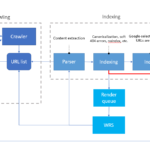Self-Care Strategies for Breastfeeding Indian Moms
Introduction:
Breastfeeding is a beautiful and challenging journey, especially for Indian moms who often prioritize their baby’s needs over their own. While ensuring the baby’s health is paramount, it’s equally important for new mothers to focus on their well-being. Incorporating a blend of traditional Indian practices and modern self-care strategies can significantly enhance a breastfeeding mother’s health and happiness. This article outlines essential self-care strategies for breastfeeding Indian moms.
1. Eat a Balanced Diet:
Traditional Indian diets are rich in nutrients, but breastfeeding moms need to focus on specific foods that boost milk production. Incorporate fenugreek seeds, sesame seeds, and leafy greens into your meals. Ensure a diet rich in protein, vitamins, and minerals by including dals, paneer, and khichdi. These foods not only support milk production but also replenish the mother’s energy levels.
2. Get Enough Rest and Sleep:
Adequate rest is crucial for new mothers. Try to sleep when your baby sleeps, and don’t hesitate to ask for help from family members. Even short naps during the day can help restore energy and improve mood, making it easier to handle the demands of motherhood.
3. Stay Hydrated:
Hydration is key to maintaining a good milk supply. Drink plenty of water, and consider adding coconut water or herbal teas like cumin tea to your daily routine. Avoid caffeinated and sugary drinks as they can negatively affect milk production and overall health.
4. Prioritize Physical Care:
Taking care of your body is essential. Maintain personal hygiene by regularly washing your breasts and keeping them dry to prevent infections. If you experience soreness, use nipple creams for relief. Incorporate light exercises such as yoga to aid physical recovery and reduce stress.
5. Surround Yourself with a Support System:
Building a strong support system is vital. Engage with family members, join breastfeeding support groups, or connect with other new moms. Sharing experiences and receiving practical advice can provide emotional comfort and help you navigate the challenges of breastfeeding.
6. Focus on Mental Health:
The postpartum period can be emotionally taxing, so it’s important to prioritize your mental health. Engage in activities that bring you joy and relaxation, such as reading, listening to music, or spending time outdoors. Practicing mindfulness or meditation can also help manage stress and anxiety, contributing to overall well-being.
7. Adopt Traditional Practices:
Incorporating traditional Ayurvedic practices can be beneficial. Consuming warm foods, using ghee, and adding spices like turmeric to your diet are known to support postnatal recovery. These practices have been passed down through generations and are still relevant today.
8. Seek Professional Guidance:
If you face challenges with breastfeeding, don’t hesitate to seek professional guidance. Lactation consultants and healthcare providers can offer valuable support and solutions, ensuring that both you and your baby are thriving.
Conclusion:
Breastfeeding is a demanding yet rewarding experience. By combining traditional Indian practices with modern self-care strategies, new moms can ensure their well-being while providing the best care for their babies. Remember, taking care of yourself is just as important as taking care of your baby, so make self-care a priority during this special time.









